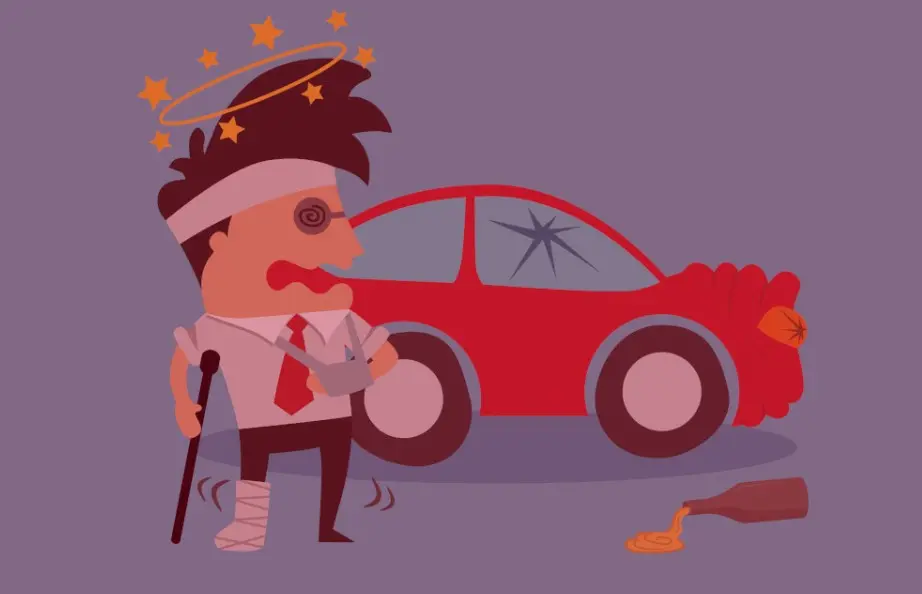Introduction
Car accidents can be overwhelming and stressful experiences, often leaving individuals unsure about the next steps. Knowing your rights after such an event is crucial to ensure you are treated fairly and receive the compensation you deserve. Understanding these rights can alleviate some of the burden and guide you through the complex landscape of insurance claims and legal proceedings.
Legal Rights in Personal Injury Claims
Knowing your right to pursue personal injury claims is vital when injuries occur due to a car accident. Personal injury law allows individuals to seek compensation for injuries sustained due to another party’s negligence. This compensation can cover various damages, including medical expenses, lost wages, and pain and suffering.
Navigating this aspect of the legal system can be complex without expert assistance. Consulting with legal professionals, such as those available at a Myrtle Beach car accident law firm, can be invaluable. These professionals are equipped to guide you on the intricacies of personal injury law and can advocate on your behalf during negotiations or litigation.
Immediate Rights and Responsibilities
Immediately after a car accident, certain rights and responsibilities come into play. You can remain at the scene, gather information, and contact the authorities. Ensuring the safety of yourself and others involved is paramount. You also have the responsibility to report the accident to the police and your insurance company promptly. Filing an accident report is often a legal requirement and provides an official incident record.
In the aftermath, your rights extend to being able to seek medical attention, regardless of whether injuries are apparent. Early documentation of any injuries, through photographs and medical records, is crucial. This ensures you receive the necessary medical care and lays the groundwork for future insurance claims or legal proceedings.
Understanding the Insurance Claims Process
Navigating the insurance claims process can seem daunting, particularly amid the stress of an accident. However, knowing your rights can make this process more manageable. As a policyholder, you’re entitled to understand the terms of your policy and receive a clear explanation of your coverage. This information can often be detailed, so asking your insurer for clarification whenever necessary is beneficial.
In the event of an incident, you have the right to file a claim for damages to your vehicle, medical expenses, and any other relevant costs. Insurance companies are obligated to handle claims in a timely and fair manner. If disputes arise, policyholders can seek assistance from consumer protection agencies or legal counsel to ensure compliance with fair practice standards.
Securing Compensation for Damages
Securing compensation for damages incurred is a significant concern following a car accident. This process involves evaluating the extent of property damage, injury costs, and any other financial losses experienced. Understanding your rights in this regard is essential. You are entitled to pursue compensation for repairing or replacing your vehicle, which typically includes costs for appraisals and replacement car rentals.
These can also be claimed if injuries have led to medical expenses, rehabilitation, or lost wages. In more severe cases, where long-term disability or suffering is involved, securing adequate compensation can ensure your future financial stability. It’s crucial to document all related expenses meticulously to support your claim.
Role of Evidence and Documentation
The role of evidence and documentation cannot be overstated in any car accident claim. Whether your goal is to secure insurance payouts or pursue legal action, having comprehensive documentation of the accident and its repercussions is essential. Start by gathering evidence at the scene, such as photographs of vehicle damage, road conditions, and any visible injuries.
Collecting witness statements can offer valuable accounts that support your version of events. Record medical visits, invoices, and correspondence with insurers meticulously. This paperwork forms the backbone of any negotiation or court case, providing concrete proof of claims made.
The Importance of Legal Assistance
Legal assistance may seem optional, but it often plays a critical role in protecting your rights after a car accident. Lawyers specializing in car accident law can offer expert advice and represent your interests effectively. Legal support can streamline the complex processes involved, whether you’re claiming against another driver’s insurance or navigating your policy.
Legal professionals can help ensure all documentation is correctly filed and deadlines met, avoiding pitfalls that could undermine your case. They can also negotiate with insurance companies, who may attempt to minimize payouts to ensure you receive fair compensation.
Common Myths and Misconceptions
Several myths and misconceptions can cloud individuals’ understanding of their rights after a car accident. One common myth is that you must accept the first settlement offer from insurance companies. In reality, initial offers are often lower than you may be entitled to, and it’s within your rights to negotiate or seek legal advice.
Another misconception is that minor accidents don’t require official documentation or reporting. However, even seemingly minor accidents can result in injuries or complications that manifest later, making immediate documentation essential. Understanding that each case holds potential rights to compensation is crucial.
Conclusion
Understanding your rights after a car accident is fundamental to ensuring fair treatment and securing the compensation you’re entitled to. From the immediate aftermath of an accident to the complexities of insurance claims and personal injury lawsuits, being informed and proactive can make a significant difference in the outcome of your case. Documentation, legal guidance, and a clear understanding of your entitlements empower you to navigate these challenging situations confidently.
Whether dealing with insurance or pursuing a personal injury claim, securing professional assistance is often the most effective way to uphold your rights. By taking these steps, you can focus on recovery and moving forward, knowing your interests are protected.



